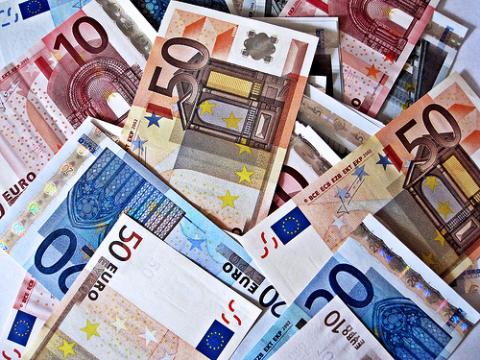The 'tough decisions' that aren't so tough

Irish politics is based on the idea that the State's job is to comfort the comfortable and afflict the afflicted. By Vincent Browne.
Enda Kenny, Michael Noonan and the others in this Cabinet can reasonably anticipate that the more outrageously unfair the coming budget will be, the more it will be welcomed in the corridors of power in Brussels, Berlin, Frankfurt and Paris, and the more Ministers will congratulate themselves for taking tough decisions that are in fact not remotely tough on themselves or their cronies.
And if unemployment benefit is cut by a few percentage points and child benefit is cut by a few more percentage points, they will still protest the whole thrust of their efforts is designed to protect the vulnerable and the least able to bear the pain of austerity.
There are fair ways of making the fiscal adjustment required – indeed there are fair and effective ways of getting the EU, European Central Bank (ECB) and International Monetary Fund (IMF) off our backs. The principle of the strategy is simple: that those of us most able to pay, do pay, and that those less able to do so are spared.
First off, cuts in public sector pay. More than half of all 431,827 public servants are paid incomes of less than €40,000. They should experience no cuts. About 140,000 are paid between €40,000 and €80,000. They are paid probably €50,000 on average. Were they to take a 10% cut in pay, the savings would be around €0.7 billion. There are more than 40,000 public servants earning €80,000 and over. Were they, on average, to take a pay cut of one-third, the saving would be about €1.3 billion. (This could be gradated, so that those in the €80,000 to €100,000 bracket would take a cut of perhaps 20%, with those on higher levels taking a higher cut.) These calculations are based on data supplied in answer to a Dáil question on January 18th last.
Data compiled by the Revenue Commissioners shows individuals and couples who file their tax returns jointly and who are paid €80,000 and more, comprise just 9% of all income tax payers (193,495 out of 2,224,798 income tax payers) and are paid 33% of all income paid to everyone in the State. These 193,495 individuals and couples are paid on average €143,390 and they pay just 33% of this on average in income tax and the Universal Social Charge (USC). If this group were to pay 10 percentage points more of their income in tax, (ie 43%, including the USC), the additional revenue to the State would be €2.7 billion.
If, in addition to this, those taxpayers earning more than €140,000 – there are 49,195 of these, and they are paid €13 billion in total, an average of €268,199 each – were required to pay a total of 52% of their income in income tax, there would be a further yield of €0.8 billion.
Also, a household charge would yield €1 billion. Then, with some of the projected cuts to yield €1 billion, the total adjustment would be €7.5 billion.
The scale of this adjustment certainly would be deflationary, but there would be compensations.
The first is that this would be almost the end of the austerity programme and an appreciation of that would itself generate optimism, in contrast to the dismal prospect of austerity for years more. Secondly, it would have a very salutary impact on the bond markets, very probably enabling Ireland to return to borrowing from the markets and ending the dependence on the EU and IMF.
That would be crucial. Then we could recover our sovereignty and with that decide for ourselves to discontinue all payments to unguaranteed bondholders, irrespective of what the ECB felt about it. If it resulted in some of our financial institutions collapsing, then let them collapse.
Above all, a strategy such as this, aiming at those of us best able to pay, is fair.
But this won’t happen, nor will any such strategy aimed at requiring those best able to pay to do so, because our politics is conditioned to comfort the comfortable and discomfort the discomforted.
It is an instinctual reflex of our body politic, just as the privileging of Ministers is – isn’t there something quite telling in the Cabinet decision to permit the private cars of Ministers, driven by private cronies of the Ministers, to use bus lanes, while the rest of the populace is penalised for so doing?
There is also the impulse of deference. Deference to the big beasts of Europe and the financial world, eagerness for the praise of our betters, for the company and camaraderie even of tax avoiders and tax exiles. The impulsive rejection of the proposed tax on financial transactions is proof merely that the deference to high finance is even greater than to high politics.
Instead, we are being softened up for a budget that will afflict the least able to bear affliction, through social welfare cuts – inevitably to be described by that wicked word “reforms” – through taxes on the poor, increased VAT, and protestations of fairness when the rich are required to make minor adjustments to their status and lifestyles.
Image top: Images_of_Money.
